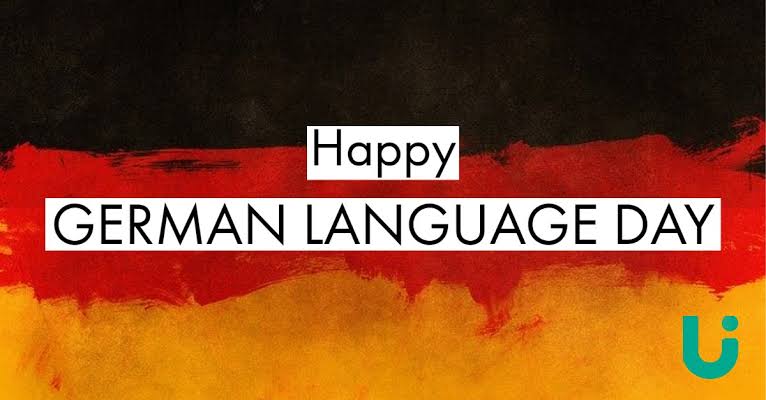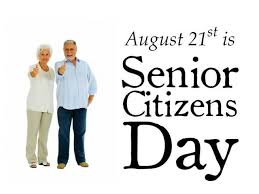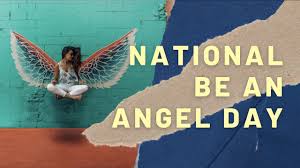German Language Day – September 10, 2022, history, quotes
It’s one of the longest words in German and something to consider on National German Language Day, which occurs every September 10.
“Rindfleischetikettierungsüberwachungsaufgabenübertragungsgesetz” may seem like gibberish to the non-German language speaker. In actuality, this word (which we won’t even attempt to pronounce) is now obsolete. It translates as “Beef labeling monitoring delegation Act.” And yet, today, we mourn its loss.
German is the language of poets Bertolt Brecht, Rainer Maria Rilke and the classic Weimar-era cinema. To promote the language and encourage more people to learn it, the German Language Association (VDS) created this day 17 years ago, helping to revive the speaking of German across the globe.
History of German Language Day

It is believed that the German Language, or “Deutsch” got its start more than 2,000 years ago. Some records exist showing that people from the 1st century in the Roman Empire may have come across German speakers.
Now, German is the most widely spoken official, or co-official language in several European countries including Germany, Austria, Switzerland, Lichtenstein, and even the province of Italy called Tyrol. With roots that are similar, the German and English languages tend to share quite a bit of vocabulary and are considered to be 60% similar, lexically speaking.
The German Language Association seem to have started German Language Day and, since then, it has also been endorsed by the United Nations General Assembly and Conference. The purpose of the day is simply to encourage people to appreciate the beauty of the German language and the various cultures that embrace it as their own.
GERMAN LANGUAGE DAY TIMELINE
1st century B.C.
The first recorded use of German
Historical records reveal that ancient Romans were in contact with German speakers.
1522
Lutherbibel is published
Luther translates the Bible into German, providing a people’s alternative to the dominance of Latin.
1981
Famous German war movie, “Das Boot,” is released
Directed by Wolfgang Peterson, this German classic earned fame all over the world.
2001
German Language Day debuts
The German Language Association (VDS) celebrated this day for the first time, embarking on an endeavor to promote the German language, worldwide.
GERMAN LANGUAGE DAY ACTIVITIES
German, anyone?
Learning German can be a whole lot of fun, especially when you actually get a chance to use it on a European trip. But if you can’t travel to Germany, right here in the United States, there are German pastry shops or bookstores where you can try out what you’ve learned.
Read a German classic
Even an English translation will do. Because the more that you read, the more you’ll learn. National German Language Day is also a great day to watch some classic German horror films like “Nosferatu” or “The Cabinet of Dr. Caligari.”
Have a beer. Prost!
Okay, so this is not exactly Oktoberfest. But as far as we know, anything German calls for a cold beer. And a meaty, bratwurst!
5 FACTS ABOUT THE GERMAN LANGUAGE THAT WILL UNTWIST YOUR TONGUE
It’s the sixth most widely-spoken language
By ranking, these are the most widely-spoken languages in the world: Chinese (encompassing both Mandarin and Cantonese,) English, Hindi-Urdu, Spanish, Russian and German. It’s also the most widely-spoken language in Europe. Gut gemacht!
German is the language of writers and thinkers
Goethe, Schiller, Brecht, Marx, Nietzsche — great thinkers all, were masters of the German language.
German and English are sister languages
Both languages are a part of the West Germanic languages. German and English have greatly influenced each other’s cultures and sometimes, there’s also a little sibling rivalry!
Unlike English, German has three genders
Masculine, feminine, and neuter. If that’s hard to wrap your mind (and your mouth) around; some languages, like Polish, have six grammatical genders!
German has some funny proverbs
“Das ist nicht dein Bier” translates as, “that’s not your beer.” But what it really means is, “this is none of your business, stay out!”
WHY WE LOVE GERMAN LANGUAGE DAY
German is the most widely-spoken language in Europe
Spoken by 95 million people worldwide, German is the native language of Germany, Austria, Switzerland and Liechtenstein. Plus, it’s fascinating when one German word contains 80 letters!
Language and culture go hand-in-hand
In a world where English is becoming the go-to language on the international stage; individual countries are working hard to maintain their own national lingua franca. Reviving the German language is also an attempt to preserve the culture and history of Germany. But if you want to learn contemporary German, watch German television on National German Language Day.
Forgetting your mother tongue is a real loss
For German children living outside Germany, learning and speaking their mother tongue is one of the most important ways they can connect to their culture and heritage. It’s also an added asset to be bilingual or even trilingual in today’s international business climate.
How to Celebrate German Language Day
Enjoy the celebration of German Language Day by paying heed to the day in some fun ways. Check out some of these ideas or come up with some other creative ways of your own:
Learn Some German Language Words
One of the best ways to celebrate German Language Day would obviously be to speak German all day! But for those who are not yet bilingual, at least this would be a good opportunity to learn a few new words to take into the future. Here are a few German Language words to get started with:
Danke means ‘thank you’. This word is one of the most important for anyone who might ever visit a German-speaking country.
Bitte means ‘please’. Another vital word for politeness within the German language.
Guten Morgen means ‘good morning’. This is a great phrase for English speakers because it sounds so similar.
Entschuldigung means ‘excuse me’. Okay, pronouncing this one might be a bit more challenging–but try it anyway. It might even be fun!
Take a German Language Class
Those who have ‘learn a foreign language’ on their bucket list might use German Language Day as the motivation to get started on checking that item off the list. In today’s world of technology, getting access to learn a language is easier than ever. With online courses, smartphone apps and live lessons with someone living on the other side of the world, learning the German Language has never been more accessible.
Read a German Author or Watch a German Film
For those who aren’t ready to start learning German yet, one way to show appreciation would be to read a translated version of a book that was originally written by a German author. Or, even less of a commitment would be to watch a film that was made in German but has English subtitles. Enjoy the unique sense of culture or sound of the language in honor of German Language Day.
Sandeep Raiza — Content Writer, Website Designer, SEO Strategist, and WordPress Expert AI specialist delivering impactful digital solutions that drive business growth.Combining creative storytelling with technical expertise.




